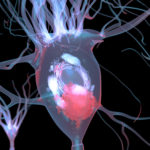All news
Give your views on possible new Alzheimer’s treatments
15 February 2022

All medicines may have side effects for the people who take them. But if there was a new treatment to slow or stop Alzheimer’s, how would you weigh up its benefits against its potential risks? That’s what researchers are asking as part of a new project. One of our charity partners, Alzheimer’s Research UK, has […]
Can we predict Parkinson’s?
27 January 2022

Parkinson’s is a progressive neurological condition that leads to tremors, stiffness and difficulty with walking, as it can affect balance and coordination. Parkinson’s has more than 40 symptoms, both motor and non-motor, which usually begin gradually and get worse over time. Every hour, two more people are diagnosed. That’s the same as 18,000 people every […]
Researching the best way to improve well-being for dementia carers
12 January 2022

Many people who are living with dementia are cared for at home by a family member or a friend. We know that unpaid caring can be stressful and impact both mental and physical health, so what can be done to help? Aim of the study Researchers from Bangor University with funding from the National Institute […]
The non-approval of aducanumab in Europe still marks a significant stride forward in dementia research
17 December 2021

An opinion piece by Professor John O’Brien, NIHR Clinical Research Network National Specialty Lead for Dementias The European Medicines Agency (EMA) has today said no to approving aducanumab – a new drug to treat Alzheimer’s disease. EMA considered that although the drug removed amyloid, a toxic protein that builds up in the brains of people […]
Developing strategies for a good night’s sleep
2 December 2021

Many people living with dementia have sleep difficulties which can be troublesome for the person affected, their families and carers. Problems can include reduced and or disturbed sleep, nighttime awakening, wandering and excessive napping during the day. There are currently no effective treatments to help. Aim of the study Researchers from University College London (UCL) […]
Utilising Join Dementia Research for PhD dementia studies
25 November 2021

As a PhD student researching the impact of music on dementia, Anne-Marie Greenaway explains why she became interested in this particular area and how Join Dementia Research helps with her studies. The beginning of a dementia research journey Prior to starting her Masters degree in Clinical Language Sciences, Anne-Marie started to notice dementia friendly signs […]
Developing scan technology for more accurate data about Alzheimer’s disease
4 November 2021

Although Alzheimer’s disease is the most common type of dementia in the UK, the exact cause is not yet fully understood. With the exception of Aducanumab – which was recently approved for use in the U.S – most current treatments offer partial improvement in symptoms rather than helping to slow down the progression of the […]
Lewy body dementia studies currently recruiting participants
29 October 2021

October marks Lewy body dementia awareness month. The condition – sometimes called dementia with Lewy bodies – is one of the most common forms of dementia after Alzheimer’s disease and vascular dementia, yet surprisingly little is known about it. When someone develops this type of dementia, protein deposits called Lewy bodies develop in the brain […]
#PassItOn about Join Dementia Research this World Alzheimer’s Month
1 September 2021

September is World Alzheimer’s Month and this time each year, people from around the world come together to raise awareness about dementia. September 2021 marks the tenth year of this important global awareness campaign. Rates of dementia are increasing; every three minutes, someone in the UK develops dementia. There are currently 850,000 people in the […]
A message from Professor Martin Rossor
26 August 2021

On 1 October 2021, I will be stepping down as NIHR National Director for Dementia Research. One of my roles was to set up the Join Dementia Research service, to facilitate those living with dementia, their carers and the public to engage in research and to support dementia researchers to recruit individuals into research. Over […]
